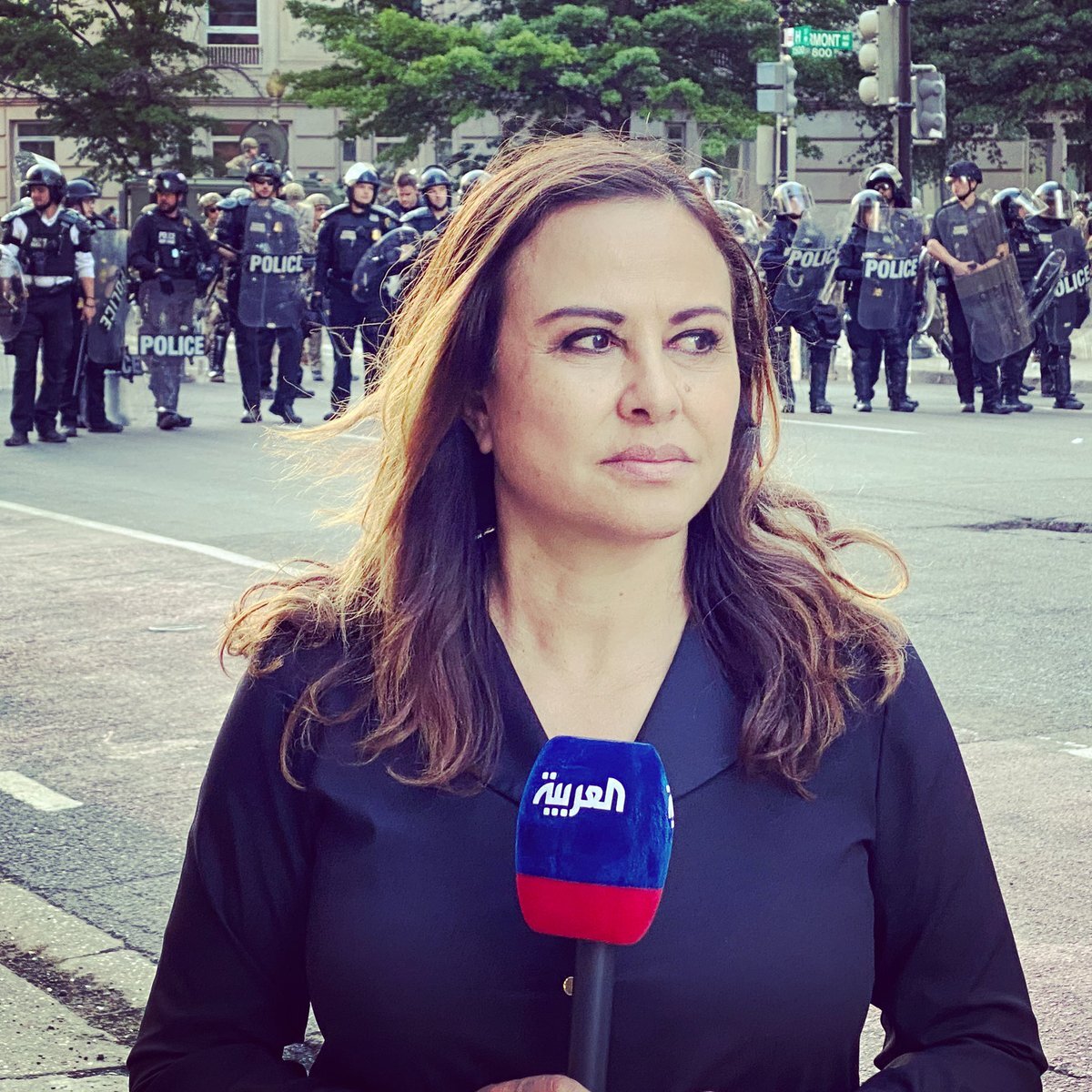As journalists, we need to be comfortable pushing the envelope

Nadia Bilbassy-Charters is the Bureau Chief for Al Arabiya in Washington D.C. Currently, she is a well-known reporter across the Middle East, and her career as a journalist dates back to the 1980s.
Bilbassy-Charters has been in Washington D.C. since 2003, but before that, she was the first Arab journalist to be based in Africa with a major television station. She recently sat down with the AFC to talk about her career in journalism.
She referred to herself as an ‘accidental journalist’ in the beginning.
Before her lengthy career in foreign correspondence, Bilbassy-Charters worked with the International Committee on the Red Cross (ICRC) in Gaza in the late 1980s. The AFP at Trans France press recruited her to report on what she was witnessing there.
“I just quit my job at the ICRC and joined the AFP,” she recalled with a laugh. “I was thinking like a foolish reporter. I was willing to run into the streets and be caught between demonstrators and the Israeli army.”
She continued, “At the time, I had no guarantees. There was no health insurance or life insurance. There was no [bulletproof] vest. It was basically, ‘if you survive, you tell the story.’”
You have to take calculated risks.
After reporting in the Middle East, Bilbassy-Charters relocated to London to work on her Master's Degree in journalism. At the time, she also reported on the first Gulf War for a news agency in London. After completing her degree, she recalled a major career decision.
“I was looking for an adventure,” she explained. “I went to a place where I had no advantages, in Southeast Asia. Sri Lanka.”
Bilbassy-Charters reported on the Sri Lankan Civil War for The Independent. In the area, she explained that while she and the people there could communicate in English, she went into the country blind to their culture. She spent four years covering the conflict in Sri Lanka before she moved to Africa. She continued to cover areas riddled with unrest and conflict, reflecting on working in these areas for years.
She conceded that there were moments in her career that were definitely scary, but she reiterated that it was part of the job.
“You have to be comfortable with pushing the envelope and challenging norms or governments or militias. And you have to take calculated risks again and again,” she said.
It can be tough to be objective, and that is okay.
“I always say that the best service that a journalist can do to any society is to try and be neutral, with understanding and sympathy towards others,” she reflected.
With anyone that lives and works in a conflict zone, there is an emotional toll that comes with it. As a journalist in these areas, Bilbassy-Charters’ main job was to expose any wrongdoing and inform her audience of how the actions of those in power can harm a society’s most vulnerable people.
“Sometimes it’s tough to be objective, and it’s okay to be biased towards exposing the suffering, and inhumanity and atrocities. I’ve seen it in Syria, in Africa, and I’ve seen it elsewhere,” she said.
Though she explained that there is a fine line between reporting on these atrocities and being a political activist: “And I always say that to people who start their career by trying to stay away from being political. There is a difference between being empathetic and being an advocate. Once you cross that line, you’re no longer a reporter.”
Being in the field is vital.
COVID-19 shut down offices for people in every career field in 2020. Even today, many organizations still rely on remote employees and telecommunications to get work done. For some journalists, the lack of in-person connection with sources took a serious toll.
Though she has decades more experience than the young field reporter in Gaza and the West Bank, Bilbassy-Charters explained that covering the demonstrations in D.C. in the wake of the killing of George Floyd brought her right back to her days in the field.
“There was this enthusiasm that I never lost, even though I’m 30 years older than the time when I started,” she explained. “This is what experience in the streets means. You don’t lose track, and you always focus on what you have to say.”
Being a journalist is about something bigger than yourself.
Bilbassy-Charters has lived and worked in Washington D.C. since 2003 with Al Arabiya. As the agency's Bureau Chief, she stated that she spends a lot of time reflecting on the decades of foreign correspondence she spent worldwide.
“Your ability to be a reporter despite everything else is hard. It’s very, very hard,” she explained. “But only the one who really loves the profession will stay with it.”
She continued, “You don’t have to go to school for journalism to be a reporter. You have to have the integrity, to tell the truth. You have to have the inquiry in mind and the curiosity to ask questions.”
Dana Nickel is a news associate of the Foreign Press. She was born in Connecticut and grew up in South Carolina. After high school, she moved to Fairfax, Virginia to attend George Mason University. Currently, Dana is a senior at George Mason University, studying communications with a concentration in journalism. Previously, she was an intern with The Globe Post, a media group based in Washington D.C that focuses on political and foreign policy news. She is also the former Co-Editor-in-Chief of Fourth Estate, George Mason University’s student newspaper. Currently, she is a senior staff writer for Fourth Estate.
